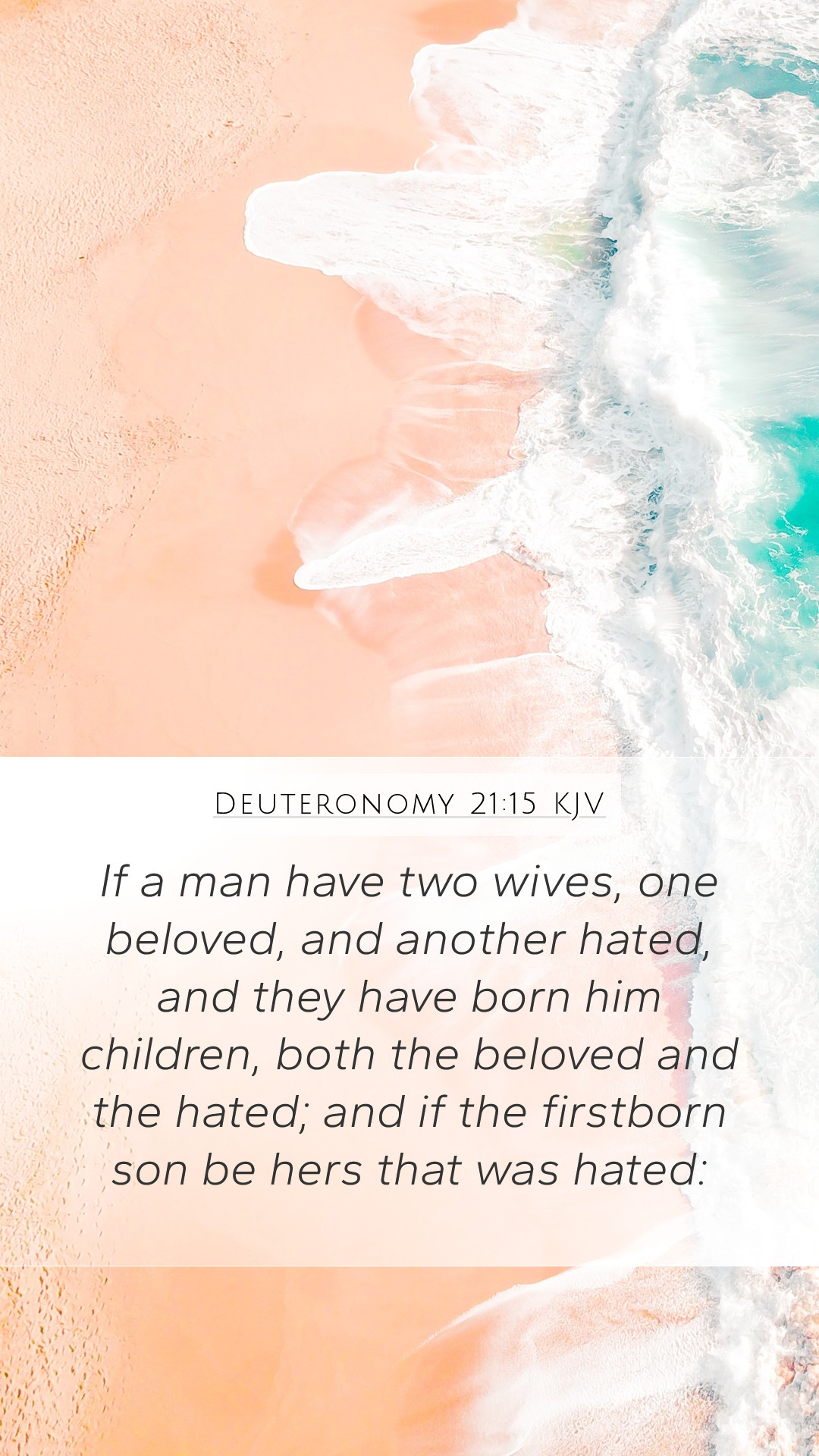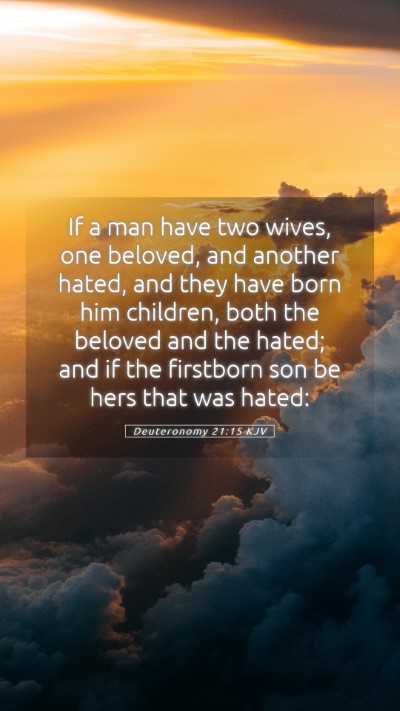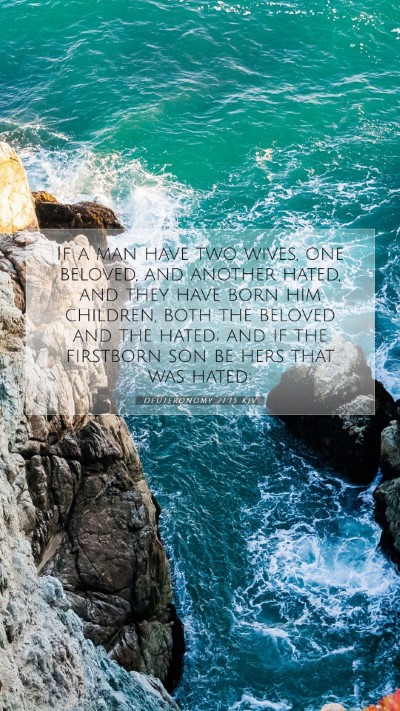Understanding Deuteronomy 21:15
Deuteronomy 21:15 reads: "If a man has two wives, one loved and the other unloved, and both the loved and the unloved have borne him children, and if the firstborn son belongs to the unloved." This verse presents a complex topic about marriage, family dynamics, and inheritance rights in Biblical times.
Overview of the Verse
The selection of this verse highlights a particular case in the societal and legal framework of ancient Israel. The mention of two wives illustrates an era when polygamy was socially acceptable, though not necessarily endorsed by all.
Bible Verse Meanings
- Polygamy Context: Matthew Henry emphasizes that the practice of having multiple wives often led to conflict and favoritism within families.
- Family Dynamics: Albert Barnes indicates that the emotional relationship between husbands and wives can influence family structure and the treatment of children.
- Inheritance Laws: Adam Clarke explains that this verse addresses the societal need to have clear laws regarding inheritance, especially regarding the rights of the firstborn son.
Bible Verse Interpretations
This verse serves as an important commentary on the priorities and affections that can arise within familial relationships.
- Firstborn Rights: The "firstborn" represents a significant position in family lineage, carrying with it responsibilities and rights that must be honored regardless of parental favoritism.
- Divine Order: The scripture can be interpreted as illustrating God's design for order and fairness in human affairs, even in the flawed scenarios of human relationships.
Bible Verse Commentary
This verse invites deeper reflection on several theological themes, particularly the importance of justice and compassion in familial relationships. The commentaries by Matthew Henry and Albert Barnes advise readers to consider the broader implications of how love and favoritism can affect children and their roles in society.
Scripture Analysis
In analyzing Deuteronomy 21:15, one must consider the cultural and historical context of ancient Israel:
- Legal Framework: The law represented in this verse is indicative of the broader legal system governing the Israelites and how it sought to regulate personal relationships.
- Moral Lessons: Beyond the legalistic view, the verse serves as a moral lesson about equity, suggesting that even when human emotions conflict, justice must prevail.
Additional Biblical Insights
Furthermore, it is essential to connect this scripture to other relevant verses that explore similar themes:
- Exodus 21:15: Discusses the treatment of children and the consequences of parental actions.
- 1 Samuel 1:2: Illustrates the complexities of polygamous relationships in the context of Hannah and Peninnah.
- Matthew 19:8: Where Jesus refers back to the original intention of marriage, indicating a divine plan for familial relationships.
Conclusion
The verse Deuteronomy 21:15 serves not only as a legal instruction but also as a moral and spiritual guide, encouraging readers to reflect on the fairness and love contained within familial obligations. By examining the Biblical exegesis provided by respected commentators, we gain deeper insights into the complexities of human relationships and the divine expectations set forth in Scripture.
Learning and Applications
This exploration of Deuteronomy 21:15 provides meaningful applications for contemporary readers. In Bible study groups and personal devotion, this verse can foster discussions on:
- The historical context of family structures in the Bible.
- The significance of firstborn rights and their application in modern familial and societal settings.
- The challenges of favoritism within families and how to address them biblically.


